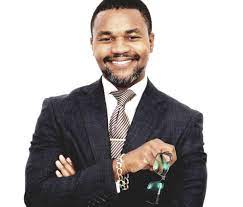Unlike what most people are led to believe, numbers can lie, but the trick is to catch the lie. Secondly, when numbers speak a common and open language, it becomes better to gain a level of consensus because there is less friction between reality and numbers. When numbers speak of successes and achievements while reality appears to tell a different story, that disconnection can be consequential.
At national level, the integrity of numbers and the ability to explain them falls in the realm of political economy. This relationship entails that politics creates an environment which enables efficient industry and capital to exist. Politics creates initiatives and policies that can either be corrective or punitive for the inefficient industry or sector. The economy acts as a channel to actualize policy intentions of those that rule. Therefore, the economy will reward efficient policies with tangible outcomes visible for all citizens to see and appreciate.
In the real world, the two most political budgets of any government are the first budget after an election victory; and the last budget before the election cycle. It is mostly here that the relationship between politics and economics is most out of balance because the political message takes precedence. During the first budget, there is intention to show a different political direction from previous regimes. This first document is typically an ambitious political statement inspired by an excited and expectant electorate.
The last budget before the election cycle is also political but from a different perspective. The question is, does it still represent the political goals of the majority? Does it capture the hopes for which its owners were granted power? Another thing to study about a pre-election budget is the difference between an allocation and actual expenditure. An allocation is an intention to spend on identified priorities.
Expenditure, however, is an identifiable conviction paying for actual priorities. A track record of this distinction between economic priorities and political conveniences, or allocation and expenditure, is what creates trust. From this perspective, then, what is declared as future expenditure becomes believable because it has a historical basis of trust. A budget full of exculpations and reasons for not attaining given priorities does not inspire much but rather raises more questions than it answers them.
In the current setting of constitutional democracy after 1991, a budget is no longer a statement of economy or political efficiency alone. Its every intention is judged by how it impacts the social pillar: The consumer, the local investor, the nurse, the teacher, the plumber, the young professional, the family man, the entrepreneur: can they plan their future using the security of the national budget? If the track record is trustworthy, if the economic reality benefits the nation than a privileged section, the answer will be a resounding yes and the opposite is equally true.
OF NATIONAL BUDGETS









